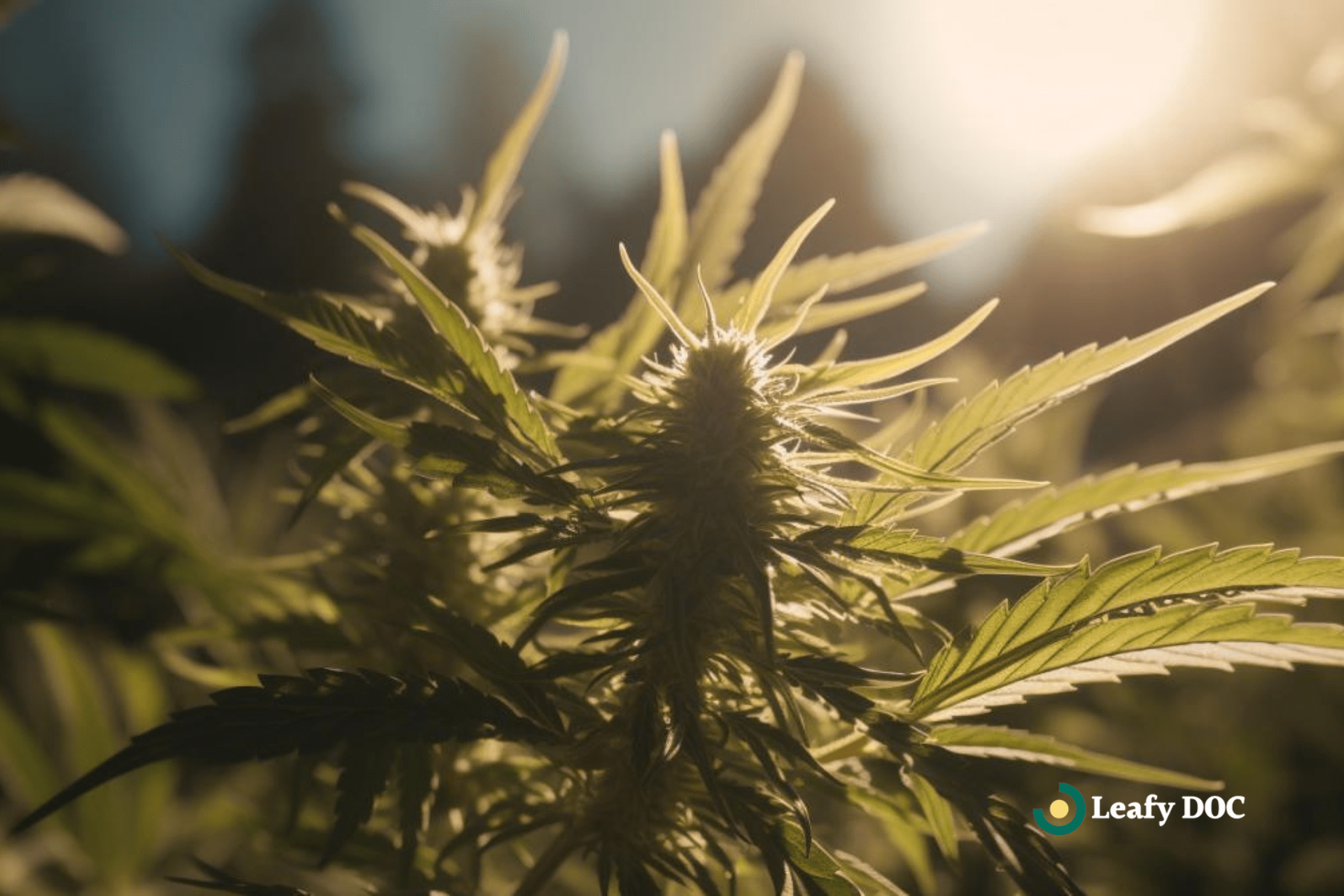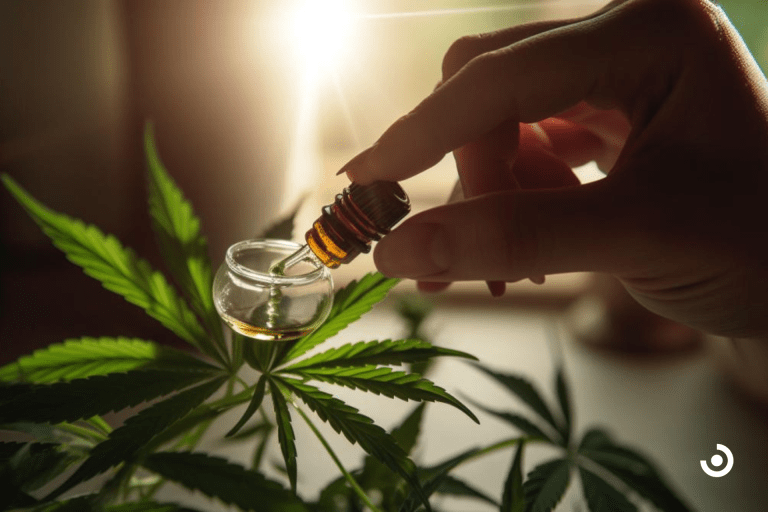The Role Of Marijuana As Medicine In Protecting Patients’ Rights
by Haley Mills · June 15, 2024
Uncover the game-changing potential of marijuana as medicine for safeguarding patients’ rights. Dive into the revolutionary world of cannabis therapy and click now to explore its incredible healing properties!

Do you ever stop and think about the rights you have as a patient? The ability to make choices about your own health and well-being, to seek the treatment that you believe is best for you?
These are fundamental rights that we often take for granted. But what happens when those rights are threatened? When the very medicine that could improve your quality of life is deemed illegal? That’s where the role of marijuana as medicine comes in.
Throughout history, marijuana has been used for its medicinal properties. Ancient civilizations recognized its healing potential, using it to treat a variety of ailments.
Fast forward to modern times, and we find ourselves in the midst of a heated debate over the legality and accessibility of medicinal marijuana. The medical benefits of marijuana have been extensively studied, with evidence showing its effectiveness in relieving pain, reducing nausea and vomiting, and stimulating appetite in patients undergoing chemotherapy, among other conditions.
But despite these findings, many patients continue to face obstacles in accessing this potentially life-changing medicine.
In this article, we will explore the historical context of medicinal marijuana, the medical benefits it offers, and the ongoing legalization efforts and patient advocacy. We will also delve into the challenges and controversies surrounding medical marijuana, as well as the importance of ensuring patient access and rights.
Key Takeaways
- Marijuana has proven medical benefits such as pain relief, reducing nausea and vomiting, and improving appetite.
- Restrictions on marijuana as medicine deprive patients of potentially effective treatment options.
- Patients have the right to explore all available healthcare options, including marijuana, and advocate for access to it.
- It is crucial to be well-informed about marijuana’s benefits and risks and to have open and honest conversations with healthcare providers.
The Historical Context of Medicinal Marijuana
Did you know that the historical context of medicinal marijuana dates back thousands of years, with evidence of its use found in ancient civilizations such as China and Egypt? It’s true!
The use of marijuana as medicine has a rich and storied past that spans across different cultures and time periods. In ancient China, for example, cannabis was used to treat various ailments such as rheumatism and malaria. The Egyptians also recognized the medicinal properties of marijuana, using it to alleviate pain and inflammation. These early civilizations understood the power of this plant and its ability to heal.
Throughout history, the use of medicinal marijuana has been intertwined with the pursuit of freedom. People have always sought ways to protect their rights, including the right to access natural remedies that can improve their health. In the context of marijuana, this desire for freedom is no different. Patients who benefit from the medicinal properties of marijuana should have the right to access and use it without fear of persecution or legal consequences.
It’s a fundamental human right to have control over one’s own body and make choices that promote well-being. The historical context of medicinal marijuana serves as a reminder that our ancestors recognized the importance of this plant in preserving our health and freedom.
Understanding the Medical Benefits of Marijuana
Explore the amazing medical benefits of marijuana and how it can improve your well-being. Marijuana has been used for centuries as a natural remedy for various ailments. From relieving chronic pain to reducing nausea and stimulating appetite, this plant has proven to be a powerful medicine. It contains compounds called cannabinoids, which interact with the body’s endocannabinoid system to produce therapeutic effects.
To better understand the medical benefits of marijuana, let’s take a look at the following table:
| Medical Benefit | Description | Examples |
|---|---|---|
| Pain Relief | Marijuana can help reduce chronic pain, making it an effective alternative to opioids. | Patients with arthritis, fibromyalgia |
| Nausea and Vomiting Relief | Marijuana can alleviate nausea and vomiting caused by chemotherapy, HIV/AIDS medications, or other conditions. | Cancer patients, individuals with HIV/AIDS |
| Appetite Stimulation | Marijuana can increase appetite, making it useful for patients who struggle with weight loss or lack of appetite. | Patients with eating disorders, cancer patients undergoing treatment |
This table showcases just a few of the many medical benefits that marijuana offers. By utilizing this plant’s power, you can control your health and improve your overall well-being. Marijuana provides a natural alternative to traditional pharmaceuticals, giving you the freedom to choose a treatment that aligns with your desires for a more holistic approach to healing. Remember to consult with a healthcare professional to determine the best course of action for your specific needs. Embrace the potential of marijuana as medicine and protect your rights to access this powerful healing tool.
Legalization Efforts and Patient Advocacy
Legalization efforts and patient advocacy have sparked a wave of hope and relief among those seeking alternative treatments. The push to legalize marijuana as medicine is not only about providing patients with the option to use a natural and potentially effective remedy, but it’s also about protecting their rights to make decisions about their own health. It’s about giving individuals the freedom to choose what works best for them, without fear of legal repercussions.
For years, patients have been fighting for the right to access marijuana as medicine. They have tirelessly advocated for the legalization of this plant, sharing their stories and experiences to show the world the positive impact it can have on their lives. And their efforts are paying off.
As more and more states and countries move towards legalization, patients are finally being heard and their rights are being recognized. The medical benefits of marijuana are being acknowledged by medical professionals and researchers, leading to increased support for its use as a legitimate form of treatment. This is a significant step forward in the fight for patient rights and the recognition of marijuana as a valuable medicine.
Legalization efforts and patient advocacy are not just about marijuana; they are about freedom. They are about the right to choose what is best for your body and your health. They are about breaking free from outdated stigmas and allowing individuals to explore alternative treatments without fear of judgment or punishment. By supporting the legalization of marijuana as medicine, you’re standing up for patients’ rights and their freedom to make decisions about their own well-being.
Challenges and Controversies Surrounding Medical Marijuana
Addressing the challenges and controversies surrounding medical marijuana, you may wonder: “Isn’t it just an excuse for people to get high?” While this is a common concern, it’s important to understand that medical marijuana is not about recreational use or getting high. Instead, it is about providing relief and improving the quality of life for patients who are suffering from various medical conditions. Medical marijuana contains compounds that have been found to have therapeutic benefits, such as reducing pain, inflammation, and nausea, as well as improving appetite and sleep.
To truly grasp the potential of medical marijuana, let’s take a closer look at a comparison table that highlights the differences between recreational and medical use:
| Recreational Use | Medical Use |
|---|---|
| Mainly for getting high and recreational purposes | Primarily for therapeutic purposes and relieving symptoms |
| Focuses on the psychoactive compound THC | Emphasizes a range of cannabinoids, including CBD, that have medicinal properties |
| Often used in social settings | Typically used in a controlled and monitored environment |
| No specific dosing guidelines | Requires precise dosing and careful monitoring by healthcare professionals |
| May have legal restrictions in some areas | Can be legally obtained with a doctor’s recommendation in certain jurisdictions |
Ensuring Patient Access and Rights
By ensuring that patients have access to marijuana as a form of medicine, you can empower them to exercise their rights and make informed choices about their healthcare. Marijuana has been proven to have numerous medical benefits, such as pain relief, reducing nausea and vomiting, and improving appetite.
However, the controversial nature of marijuana has led to restrictions and limitations on its use as a medicine. This has resulted in patients being denied access to a potentially effective treatment option.
As a patient, you have the right to explore all available options for your healthcare. By advocating for the access to marijuana as a medicine, you’re fighting for your right to choose the treatment that works best for you. It’s essential to be informed about the benefits and risks of marijuana as medicine and to have open and honest conversations with your healthcare provider about your options.
Outdated laws and societal stigmas shouldn’t restrict your freedom to make decisions about your own body and health.
Marijuana has been used as a medicine for centuries, and its potential benefits shouldn’t be ignored or dismissed. By advocating for patient access to marijuana, you’re standing up for your own rights and the rights of others who may benefit from this natural remedy.
Your voice and actions can make a difference in ensuring that patients can choose the best treatment for them. Let’s break down the barriers and fight for the right to access this medicine, so that patients can have the freedom to make informed choices about their healthcare.
Frequently Asked Questions
What are the potential side effects of using marijuana as medicine?
Using marijuana as medicine may have potential side effects, such as dry mouth, dizziness, and increased heart rate. However, it’s essential to remember that everyone’s experience differs. It’s crucial to consult with a healthcare professional to determine if it’s the right choice for you.
Are there any age restrictions for patients using medical marijuana?
Yes, there are age restrictions for patients using medical marijuana. The specific age requirements vary by state, but generally, patients must be at least 18 years old, or have parental consent if they are younger.
How does medical marijuana interact with other medications?
When it comes to medical marijuana, consider how it interacts with other medications. While more research is needed, some studies suggest potential drug interactions, so it’s crucial to consult with your doctor.
Can medical marijuana be used to treat mental health conditions?
Sure, you wanna know if medical marijuana can treat mental health conditions? Well, some folks claim it’s a magical cure-all, but let’s be real. It’s not a substitute for proper medical treatment.
Are there any ongoing research studies on the effectiveness of medical marijuana?
Yes, there are several ongoing research studies exploring the effectiveness of medical marijuana. Scientists are investigating its potential in treating various conditions like chronic pain, epilepsy, and multiple sclerosis. Stay informed!
Last Updated: August 8, 2024
Get Approved for Your Medical Marijuana Card in Minutes!

Get Your Medical Card
Connect with a licensed physician online in minutes

Like This Article?
Share with your friends
Table of Contents
Keep Reading
-
Finding The Right Dosage: THC Vs CBD
Find the ideal THC vs CBD dosage for your ultimate cannabis experience! Learn the differences between these compounds and discover the perfect balance for your needs. Click here to find your perfect dosage now!
-
How to Obtain a Free Medical Marijuanas Card in IL: A Step-by-Step Guide
Learn how to secure a free medical marijuana card in Illinois with our comprehensive step-by-step guide.
-
Improving Sleep Quality With Cannabis: Insights Into Sleep Disorders And Marijuana
Ready to improve your sleep quality? Learn how cannabis and marijuana can help alleviate sleep disorders and enhance your rest. Click now for valuable insights!



